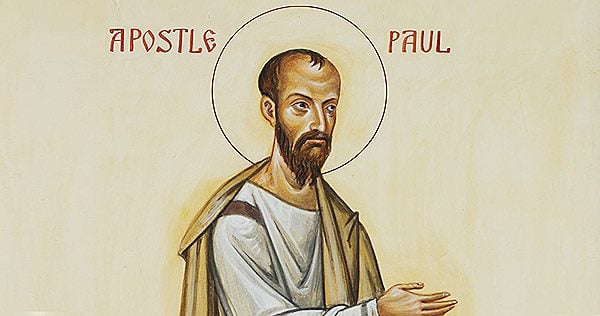Both the Roman Catholic Church and the Church of Jesus Christ of Latter-Day Saints (i. e., Mormons) claim to have special authority because they have a supposed continuing apostolic office. The former claims apostolic authority for the Pope and his bishops on the basis of "apostolic succession," while the latter claims to have actual apostles. They both claim that such authority is required to provide binding religious tradition. They both challenge Protestants with the query, "Where is your authority?" (see the same challenge by the Pharisees to Jesus in Mark 11:28 and Luke 20:2).
Protestants on the other hand, respond with our own query to Rome and Salt Lake: "Where is your authority for your apostolic claims?"
While that Protestant challenge is to illegitimate claims, Paul faced the same challenge to his own legitimate apostleship. We see his answer in I Corinthians 4:9-13: "I think that God has exhibited us apostles as last of all, like men
sentenced to death, because we have become a spectacle to the world, to
angels, and to men. We
are fools for Christ’s sake, but you are wise in Christ. We are weak,
but you are strong. You are held in honor, but we in disrepute. To the present hour we hunger and thirst, we are poorly dressed and buffeted and homeless, and we labor, working with our own hands. When reviled, we bless; when persecuted, we endure; when slandered, we entreat. We have become, and are still, like the scum of the world, the refuse of all things."
Let me make a lesser application of this text before making my main point. The Apostolic Office of Rome (i. e., the papacy) and the apostles of the Mormons rule over their constituents, living extravagantly and lording it over the lesser members of their organizations. For Paul, to be an Apostle was to suffer, not to prosper. Only one of the biblical Apostles died a peaceable death (compare Acts 12:2).
However, the main point I want to bring from that passage is that Paul describes the Apostles, he together with the Twelve, as the last of God's special exhibits. Their office was a temporary one, not one essential to the continuing life of the Church. The claims of Rome and Salt Lake are contrary to the claims of the true Apostles, and the plan of Christ, the true head of the Church.
Scale of Differences between Texts
10 hours ago



1 comment:
VI. There is no other head of the church but the Lord Jesus Christ.n Nor can the pope of Rome, in any sense, be head thereof: but is that Antichrist, that man of sin, and son of perdition, that exalts himself, in the Church, against Christ and all that is called God.o
(n) Col 1:18; Eph 1:22
(o) Matt 23:8-10; 2 Thess 2:3-4,8-9; Rev 13:6
Westminster Confession 25;6
Post a Comment